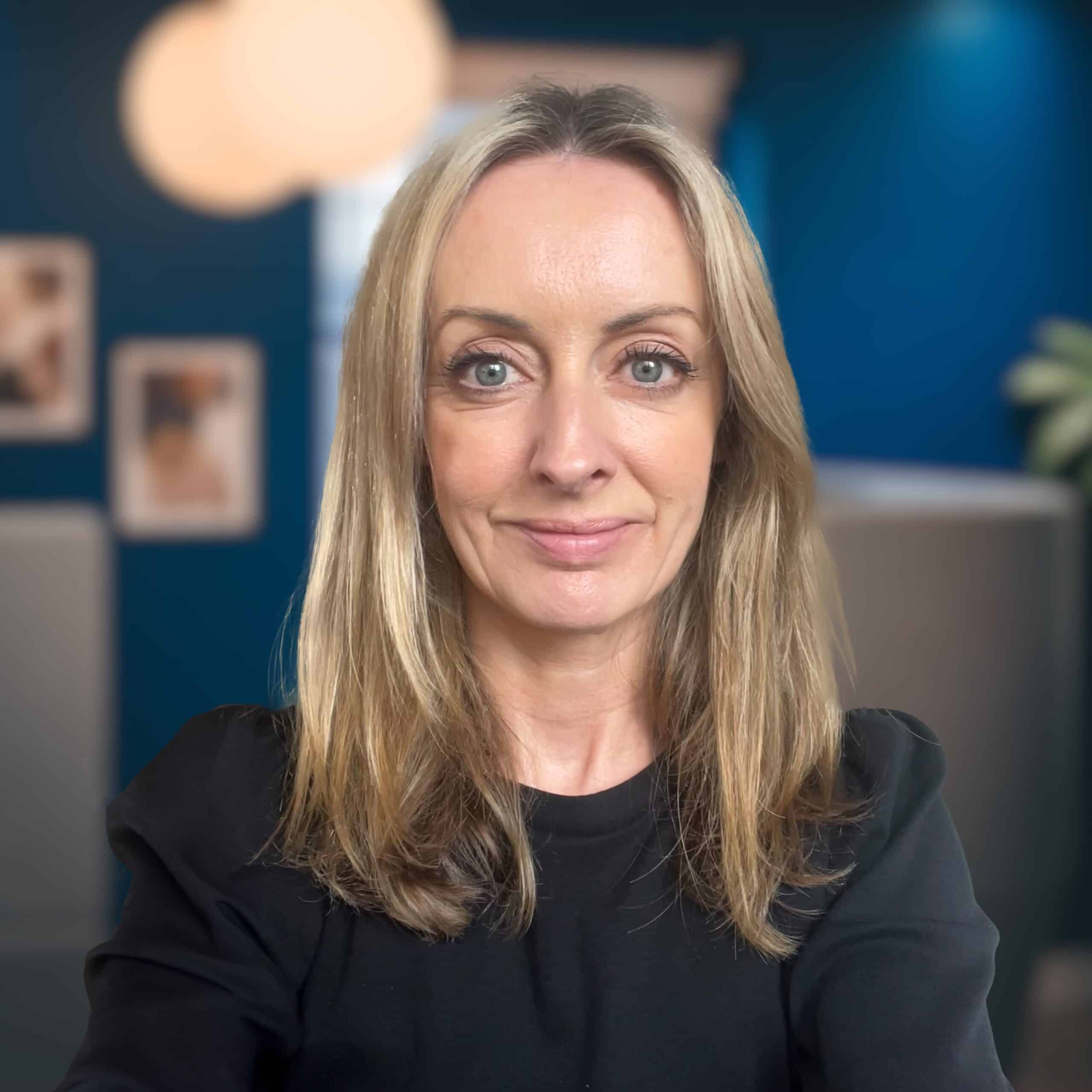Over recent years, the role of the Chief People Officer (CPO) has become more high-profile, demanding and complex. As organisations deal with multiple macroeconomic headwinds and shifting workforce dynamics – hybrid working, DE&I, the ESG agenda and seismic global political events – it is the HR function which is expected to take the lead, set the strategy and manage the impacts on the company’s workforce.
To find out more about what it takes to step up and succeed in an Executive HR role, we assembled a panel of CPOs to share their journeys and experiences. The panel included Peter Collyer, Chief People Officer at Ted Baker, Charlotte Forsyth, VP People at LoopMe, Jeanette Rooms, Ex Chief People Officer at ByBox and Andrew Neal, Chief People Officer at Communisis.
How to become a CPO
Making the first step into a C-Suite position undoubtedly requires planning, preparation and a conscious effort to pursue opportunities outside of the current ‘day job’ which build skills and marketability.
Making your ambition known to your current boss can be a positive move; ask for more responsibilities and target areas where you feel less confident in order to build the rounded skillset required. Successful CPOs have often taken lateral moves in their career, particularly from Divisional HRD into a CoE or Shared Services lead role to deepen their understanding of the entire HR function.
Climbing the ladder to a position of influence in HR doesn’t just mean staying in the HR function, however. The panellists agreed that gaining experience in other business areas can deliver benefits from a career point of view. Exposing yourself to perspectives and operating outside your comfort zone are important aspects of personal development. Time spent in ‘in business’ roles can be invaluable in building credibility, deepening understanding of commercial levers and honing decision making skills.
Work the external network. Get on the radar with reputable search firms and join networking groups and events to help build your understanding of how ‘best in class’ HR operates in other sectors or types of business. The broader your perspective the more value you will bring to an Executive team. Often headhunters are looking for pre-existing skills and experience when building a longlist, so showcasing both technical skills and interpersonal attributes is key when approaching the external market.
Do your due diligence. Before accepting a role, the panel advised that there must be a strong connection with the CEO. This relationship is possibly the most important factor in making a success of any CPO appointment. Put simply, if you don’t share the same understanding of the role or the same values to drive your work forward it may not be the right organisation for you. A CPO who is not aligned with their CEO will be set up to fail.
First 90 days – making an impact
Landing the role is the first hurdle, but what should a newly appointed CPO focus on in that crucial first 90 days?
It is usual for the early days of being a CPO to be stressful and challenging. Not only are you trying to find your feet in a new organisation, but you may discover that the C-Suite you are now part of has limited knowledge, understanding and capability around the people function. This can be a confusing time when you’re getting to grips with how the business works, what the business requires and expects from you and how the SLT operates. Building relationships is the highest priority, invest the time, be curious and listen.
Spot the opportunity for some quick wins and deliver quickly. Fixing something that isn’t working for the business, no matter how basic or below your pay grade will earn you instant credibility and open the door for more creative or longer term strategic initiatives.
Read the room. A new CPO should be sensitive to the impact they may make – despite the situation or challenges they are facing it may not be advisable to be too disruptive early on. The diagnostic phase is critical. Don’t feel pressured to change the world all at once.
Hold your nerve. At this time any new CPO may suffer from a lack of confidence, but the panel was clear that showing vulnerability is no bad thing. Indeed, having the ability to find out what’s really going on and not to assume anything is critical to establishing a new CPO’s place in a business. You cannot be expected to know everything immediately and the early days have to be a time of research and fact finding. Even if you’ve been told how certain things ‘work’ in the business this may not be the case in reality.
“Learn when to say no even when you want to say yes,” was one piece of advice given, suggesting that HR – and new CPOs in particular – can find themselves keen to please everyone and ‘do the right thing’ when actually the right thing might be not to do what everyone wants. It is important to know where to ‘draw the line’ in terms of what the rest of the SLT think HR should be doing. The CPO needs to know when to pick their fights, what to insist on and when to let things go.
Be confident in your abilities and influence. You landed the role because you are capable. Be authentic and realistic about what you can and can’t do and be ready to stand your ground.
The importance of a strong team
The panel advised new CPOs to swiftly start building their team. Panellists liked the idea of taking great talent with you as you progress. If you know and trust someone they can become a very valuable asset when you take the reins at a new organisation. You will feel supported in the knowledge that they know how you think and understand what you’re trying to achieve.
At the same time, it’s important not to alienate existing team members. Take your time to get to know your direct reports, earn their trust and be clear on your strategy. Those who buy into your vision will follow you and those who don’t will make it clear. Keeping great people close to you also means you can have access to good honest feedback. Strategically placed trustworthy people will challenge your thinking and get more out of you. In short, you can assemble the team and support structure around you that will help you maximise success.
It is particularly important to ensure you have a strong and trustworthy number two in place. Some panel members suggested this person should bring strength in HR Operations, giving the CPO the space and time to lead on strategy. Where possible invest in technical CoE skills which complement your own. A strong Reward lead can alleviate a lot of pressure on a new CPO and a strong TA lead can help deliver quick wins on ROI / cost saving.
Again, the relationship between the CPO and CEO is important here. Some of the panellists noted that CEO can be a very lonely role – as lonely as the CPO role can sometimes be – and this may lead to affinity and understanding between the two positions. Either way, the importance of keying into the direction and intention of the CEO is crucial while the CPO finds their feet.
As for the rest of the SLT, there is a sense that while it is good to have positive relationships here it is more important to ensure things get done. As one panellist put it: “You don’t need agreement but you need commitment.”
Keep learning
Make no mistake, operating in an Executive HR role will be stressful and adversarial at times. It will certainly not be quiet. Ensuring your thinking stays relevant and fresh is vital to the effectiveness and productivity of your team and your own credibility at the Board table.
The panel emphasised the need for CPOs to be self-aware, well-informed and committed to their own development. There needs to be a continuous investment in your own skills to ensure your thinking remains up-to-date and decisive. The better you know yourself – your strengths and weakness – the better your decisions will be. The self-aware CPO will know when they need to access external resources or when more information will help their function.
This self-awareness can be helped by securing and maintaining a strong external network. There are various ways to keep in touch with fellow CPOs, whether through personal friendships or official networks that bring together leaders from the profession. It may take time and effort to build a network of this nature but doing so will pay back good value to you throughout their career.
As well as an external network of colleagues, CPOs can benefit from engaging an external coach. Again, the choice of coach is a critical one – you need to make sure the person you choose has the right background and knowledge to match your needs and the relationship between the two of you has to work. With this person in place, you’ll have an independent sounding board, and someone who will always challenge you to do better.
Critical future skills
The experts in the discussion identified a number of topics currently high on the People agenda. ESG is strategically critical for many businesses, challenging them to demonstrate how they act for good in the world. Very often HR takes the lead on this, raising a voice for company-wide initiatives.
The value of HR data was also noted. Data is crucial for CPOs to help business case their strategy or demonstrate the impact they currently bring. HR data can give the function increased credibility and traction at the top table. It can reveal the real issues at play for a business, replacing speculation and gut instinct alone. Just as Finance and Operations look to data to inform and improve the company so too can HR. Making this work however does mean ensuring the data is collected accurately and in a meaningful way, and that it is analysed and presented in a way the SLT can understand. This can mean arguing for investment in the right technology and skills within the team.
It was also noted that technology and digitisation is already automating a significant amount of HR administration. This in turn can give the CPO the freedom they need to be more strategic in their work, to concentrate on the direction of the function and the initiatives required to keep employees engaged and productive. The power of technology will only increase as the use of AI evolves in business and across HR.
Common experiences
While the panel have had different experiences in building their careers – operating in different sectors, different sized organisations and different ownership models – there are many common perspectives.
Whatever the business, the CPO role will continue to be pivotal in driving commercial success. As one CPO expert put it: “The only difference in every organisation is the people.”
If you are interested in attending future events in BIE’s ‘Chief People Officer Masterclass’ series, please reach out to mandy.scarff@bie-executive.com




